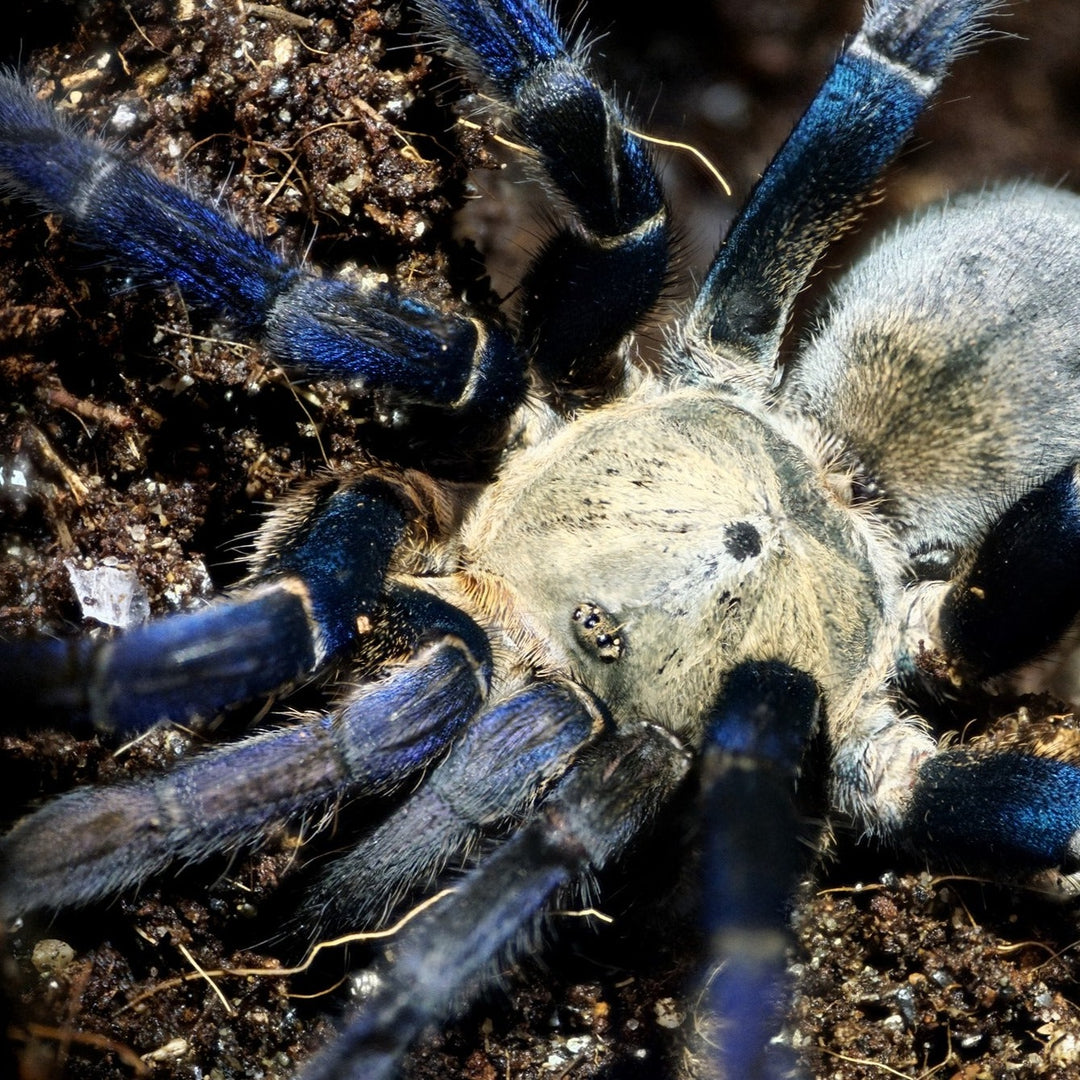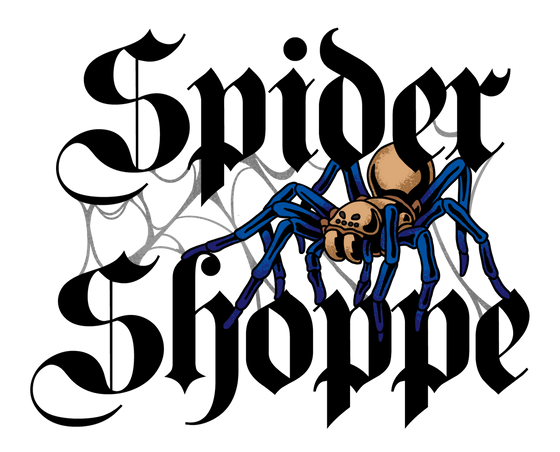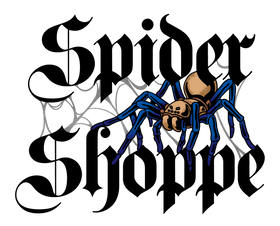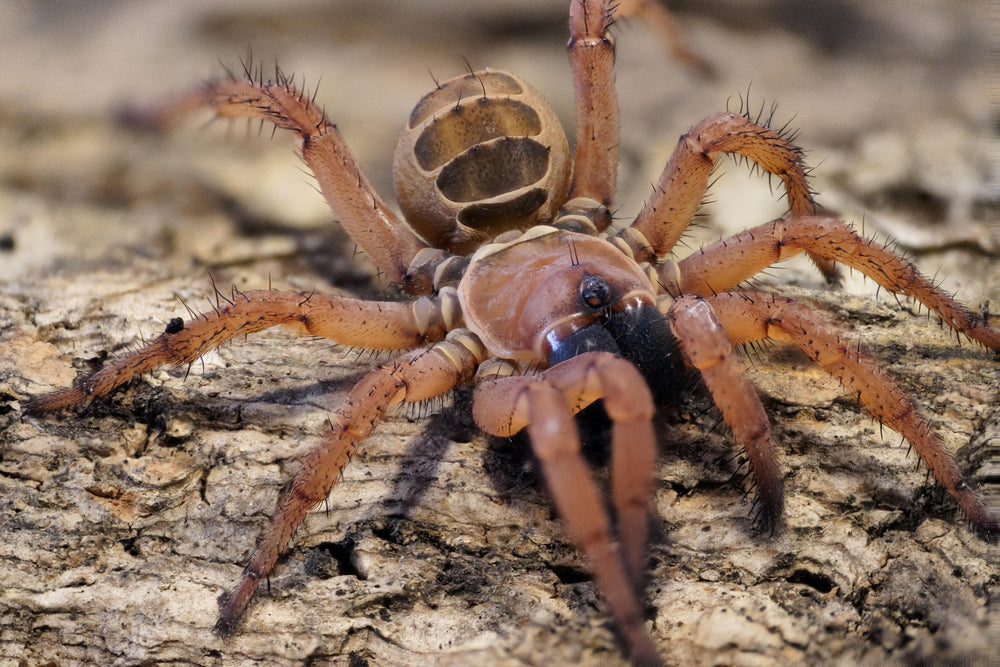
Cyriopagopus lividus (Cobalt Blue)
- Live Arrival Guarantee
- Live Animals Ship FedEx Priority Overnight (Mon-Weds)
- In stock, ready to ship
- Inventory on the way
The Cobalt Blue Cyriopagopus lividus Smith (formerly Haplopelma lividum Smith) hails from Myanmar and is among the most iconic Old World tarantula species in captivity. In fact, this is THE tarantula that started it all for Spider Shoppe owner, Tyler!
C. lividus is best described as both Beauty AND the Beast. These members of the bird spider subfamily Ornithoctoninae mature into absolutely stunning earth tigers. Mature females attain a 5” diagonal legspan with a King Kong-like physique. Their carapace and chelicerae resembles brushed steel, which is nicely paired with a dark, stormy gray abdomen sporting vague tiger-stripe-like chevrons. These tones in the body are contrasted with intensely dark, metallic cobalt blue legs. Watching these tarantulas transform from dark spiderlings slowly into technicolor dreamboats might make you feel like a viticulturist watching a fine wine gain flavor. Paired with their great agility, skittish but highly defensive demeanor, and potentially strong venom, you have the archetype of Old World tarantula personas.
The Cobalt Blue tarantula is metal in more ways than one: Its scientific name, “lividus” is derived from the Latin word, livere- ‘to be bluish.’ This word was used in ancient times to describe bluish discoloration of skin in people who were cold, very ill, or…. dead. In fact, blue is usually a fact of death due to the condition of cyanosis- when hemoglobin in blood lacks oxygen, causing the skin to turn bluish. However, in the late 19th century, “livid” became used to describe someone as ‘furiously angry.’ If you ever corner a C. lividus or read just about anyone else’s care guide about this species, you will learn the meaning of this word.
Despite its infamous reputation as a pitbull in a spider’s body, C. lividus is a very shy and secretive species that really has no interest in going after people- a common truth for most Old World tarantulas as a whole. These spiders are built like arachnid moles and love to burrow. They dive Bugs Bunny-style into their elaborate tunnels at the sight of light, but often can be seen at their burrow entrances in the evening and night. If maintained in a dark place with little disturbance, you can easily raise these magnificent spiders their entire lives without getting a single threat response. However, they are quick to startle and are ferociously defensive if spooked or cornered. This is definitely not a tarantula you should handle. They demand respect and a nice quiet place to play Bob-the-Builder all day and night, excavating their tunnels and turret-like chimneys with glee. Whoever says tarantulas living in a cage lead boring lives in captivity has clearly not watched how a cobalt blue makes use of a day in a dark closet.
A cross-ventilated fossorial (burrowing) enclosure with deep substrate (~5”- 6” deep for adults) is essential for fossorial Cyriopagopus. They do well in garden soils with lots of wood pulp that increases aeration. Contrary to popular belief, fossorial Cyriopagopus fare best when the substrate is maintained on the drier side- almost bone dry in much of the cage for larger juveniles and adults. However, always make sure a corner of the cage is periodically misted to provide a moist soil pocket. Spiderlings should be maintained in well ventilated enclosures with barely moist medium. The most common reason for death in captive Cyriopagopus is the substrate being kept excessively moist.
Good news if you want to raise a female tarantula but only can budget for one spiderling: C. lividus have a heavily skewed ratio of females to males, so you are much more likely to obtain a female than a male. If you want a thoroughly epic classical beast of a tarantula that’s named after the color of corpse skin, join the guild of proud Cobalt Blue Tarantula keepers. You won’t be disappointed.
References
Smith, A.M., 1996. A new species of Haplopelma (Araneae: Theraphosidae), with notes on two close relatives. Mygalomorph, 1(2), pp.21-32.
“Livid” In: Dictionary, O.E., 1989. Oxford English Dictionary. Simpson, Ja & Weiner, Esc, 3.

Info on our shipping policy can be found on our T&C page.



